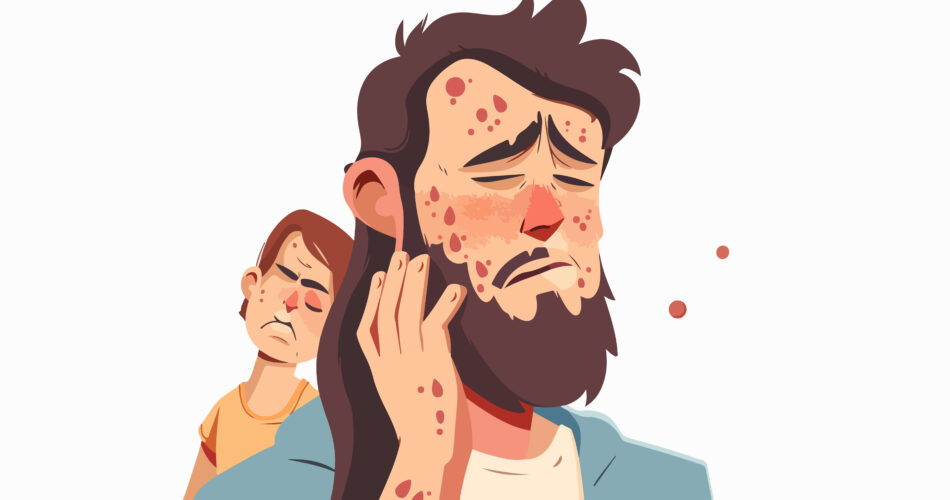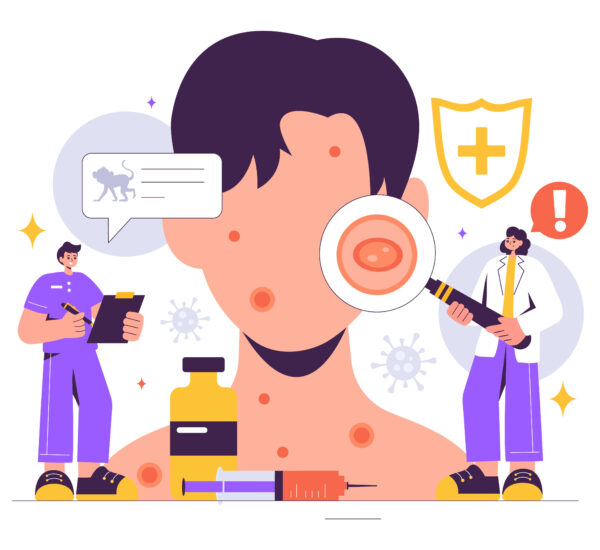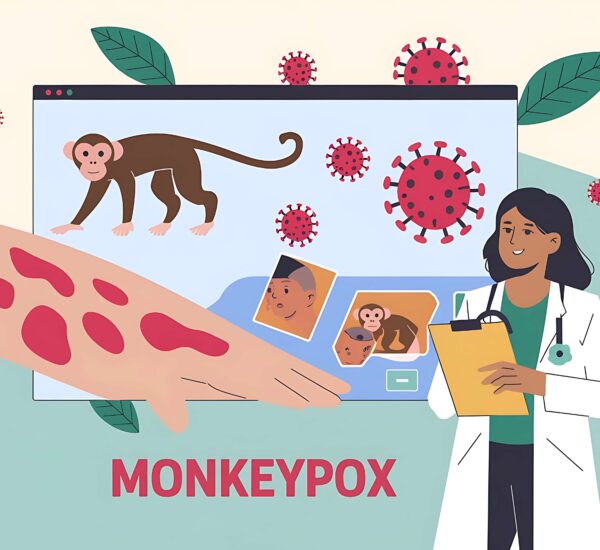As Mpox continues to pose a health concern globally, understanding Mpox vaccine eligibility is crucial for Filipinos. Initially recommended for adults over 18, recent global health crises have led to updates in the age criteria for vaccination. This article provides a comprehensive guide to the eligibility requirements for the Mpox vaccine in the Philippines, helping you determine if you or your loved ones should consider vaccination.
Basics of Mpox Vaccine
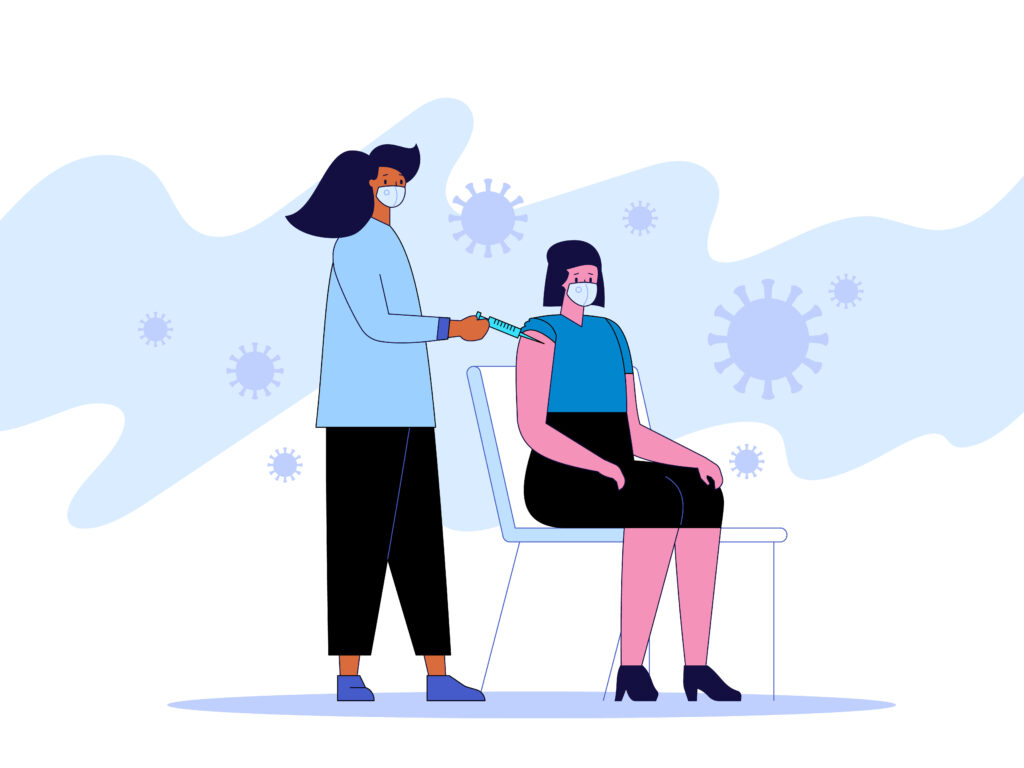
The Mpox vaccine, also known as the monkeypox vaccine, is a critical tool in the prevention and control of monkeypox outbreaks. According to the World Health Organization, managing Mpox infection doesn’t necessarily include mass vaccination as a solution. However, certain people who fit the criteria for Mpox vaccine eligibility must receive the Mpox vaccine. These people are considered the most vulnerable among the rest of the population.
However, it is important to note that while the Mpox vaccine is not a mass solution, other initiatives against Mpox must still occur for public health protection. That’s because Mpox or Monkeypox is a severe illness, which belongs to the Orthopoxvirus genus, the same family as the variola virus that causes smallpox.
Although monkeypox is less severe than smallpox, it can still cause significant illness and has the potential to spread through physical contact, sexual contact, and other indirect forms of contact. In that case, proper handling of the matter is a must, which vaccines and other health initiatives can provide.
How Does the Mpox Vaccine Work?
The Mpox vaccine works by stimulating the body’s immune system to recognize and fight the Mpox virus. When vaccinated with the doses of the vaccine, the immune system produces antibodies and trains T-cells to recognize and destroy cells infected with the virus. If a vaccinated person later comes into contact with the monkeypox virus, their immune system can quickly respond to prevent infection or reduce its severity.
This vaccine works by receiving 0.5 ml as the first dose of the vaccine. After 4 weeks or 28 days, another 0.5 ml will be administered for the second dose. 2 doses can help control the number of Mpox cases as it builds the immunity needed to eradicate the threat of Mpox.
What is the Available Mpox Vaccine?
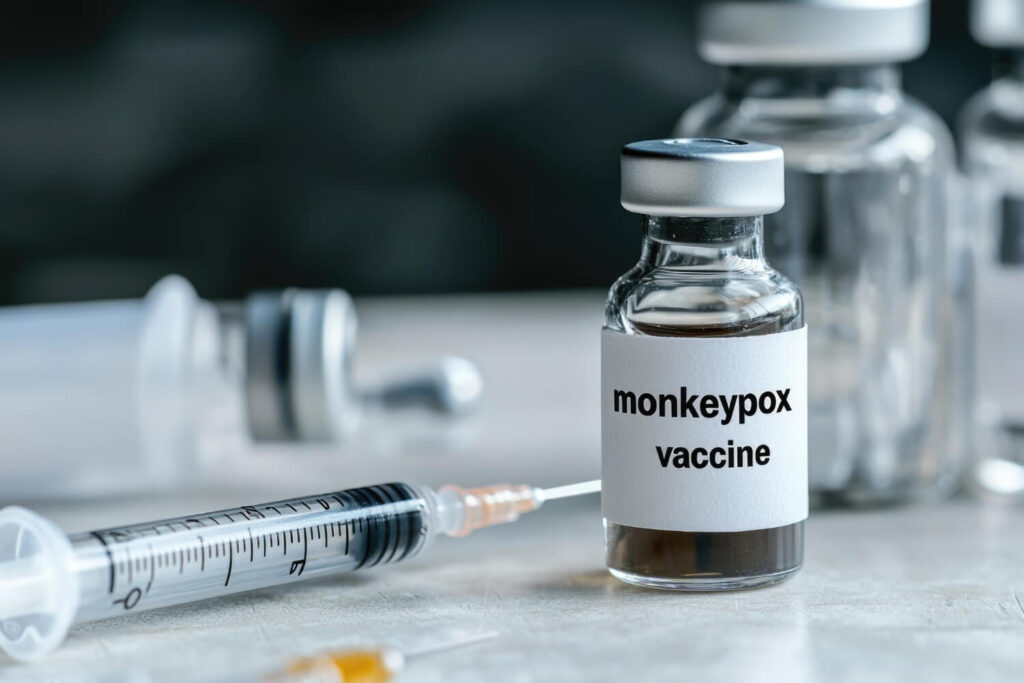
The Mpox vaccine is designed to provide immunity against the monkeypox virus. There are a few vaccines that have been developed for this purpose:
1. JYNNEOS Vaccine (also known as Imvamune or Imvanex): This is a newer generation vaccine that has been approved for both smallpox and monkeypox. It is a non-replicating live virus vaccine, meaning it uses a live virus that cannot replicate in human cells to stimulate an immune response without causing disease.
2. ACAM2000 Vaccine: This is an older-generation smallpox vaccine that can also be used for monkeypox. It contains a live vaccinia virus that can replicate in human cells and produce a strong immune response. However, it has more side effects than JYNNEOS.
Please take note that these vaccines are not yet available in the Philippines.
Mpox Vaccine Eligibility in the Philippines
Mpox Vaccine Eligibility Criteria
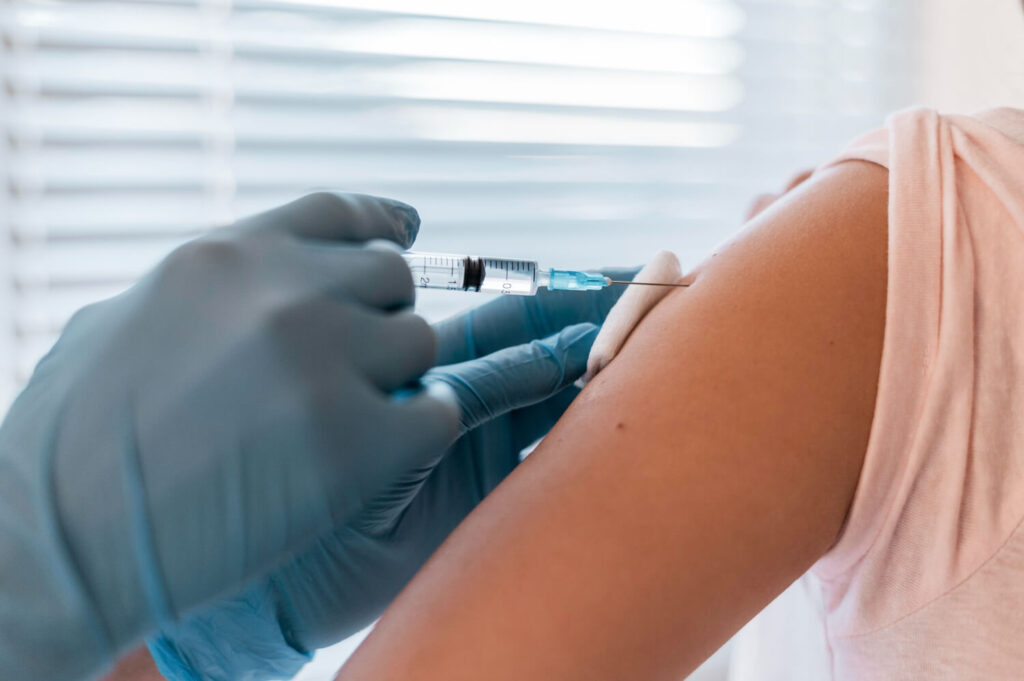
This vaccine is a crucial measure in preventing the transmission of these highly contagious diseases and safeguarding the health of the population. In that case, the World Health Organization strongly advises the use of the Mpox vaccine mainly for adults aged 18 and older. Commonly, this age group is at a high risk of exposure to Mpox due to many interactions.
To specify, here are the groups identified by the WHO for vaccine considered in the Mpox vaccine eligibility list:
Unprotected Sex Workers
Mpox is known to be a consequence of physical touch, and that includes sexual contact. Long research has uncovered that people with many number of sexual partners and engaging in unprotected sex can spread the Mpox virus through body fluids. In that case, individuals working in that industry are some high-risk groups that must receive the best protection like the Mpox vaccine.
Recent Exposure from Mpox Patient
Meanwhile, this exposure can involve close contact such as skin-to-skin interactions or talking with each other for a long time. These 2 actions are considered transmission methods, which lead to the spread of Mpox.
People Diagnosed with Sexually Transmitted Disease
Individuals with poor sexual health are also included in the list of high-risk individuals. Due to the weakened immune system, individuals who are sexually active and have been diagnosed with STDs have a higher risk of severe Mpox illness. Some of the people identified who mostly contract STDs are men having sex with men and individuals with multiple sex partners.
The diseases are the following:
- syphilis
- HIV
- gonorrhea
- chlamydia
Household Members of the Mpox Patient
Lastly, the group recommended by the WHO to receive the vaccine is the family members of the confirmed Mpox patient. Since normal activities such as talking with people and sharing public items at home can be factors for transmission, it’s best to strengthen the immunization of everyone at home. Thus, helping to stop the transmission of viruses.
Common items at home that can be a cause of Mpox transmission:
- door handles
- utensils
- plates
- cups
- towels
Expanded Mpox Vaccine Eligibility in Response to Outbreaks
On the other hand, people below 18 years of age can be eligible to receive the vaccine. This special case applies when a global outbreak is present.
This strategy aims to target vulnerable or high-risk groups to reduce transmission and protect the broader community. By prioritizing vaccination in these areas, public health officials can work to contain the outbreak and prevent further spread of the disease.
Aside from that, this approach may involve targeted outreach efforts, mobile vaccination clinics, and partnerships with local community organizations to ensure that those who are most at risk have access to the vaccine.
Vaccine Administration Details
Where to Get Vaccinated
As mentioned, the JYNNEOS vaccine or MVA-BN Mpox vaccine is not yet available in the Philippines. However, if the time comes and the government successfully acquires the vaccine, selected individuals can receive it in designated locations.
These locations may involve the following:
- public health centers
- hospitals
- clinics
By providing convenient and accessible locations for vaccination, these centers help ensure that as many people as possible have the opportunity to receive important immunizations.
Vaccination Process
The vaccination process for Mpox involves receiving two injections, with the second one administered four weeks after the first. Individuals need to complete the full series to achieve the best possible protection against Mpox. By completing both doses of the Mpox vaccine, individuals can ensure that their immune system has built up the necessary defenses to effectively fight off the virus and reduce the risk of contracting Mpox.
Additionally, completing the full series of vaccinations helps to contribute to overall community immunity, which is essential in preventing the spread of Mpox within a population. Therefore, individuals must follow through with both doses of the Mpox vaccine to protect themselves and others from this contagious disease.
Addressing Common Concerns and Misconceptions
Vaccine Safety and Side Effects
The Mpox vaccine is generally safe for most people. Common side effects may include mild reactions at the injection site, such as redness or swelling, as well as fever and muscle pain. These side effects are usually mild and go away on their own within a few days.
Severe reactions to the vaccine are rare, but it’s important to seek medical attention if you experience any concerning symptoms after receiving the vaccine. Overall, the benefits of getting vaccinated against Mpox far outweigh the potential risks of side effects.
Clashing Doses of Vaccines and Other Medications
While adverse events can be rare, some oral medications with the dose of the Mpox vaccine might result in unwanted situations. It is important to monitor potential side effects and to seek medical attention if any concerning symptoms arise.
Additionally, it is important to follow the recommended dosage and administration guidelines to minimize the risk of experiencing any adverse events. Always consult with a healthcare professional before starting any new medication or vaccine to ensure safety and efficacy.
Frequently Asked Questions
Can children get the Mpox vaccine in the Philippines?
The Mpox vaccine is currently recommended for adults aged 18 and older, but in the face of a global outbreak, individuals below 18 are also recommended to receive the dose of the Mpox vaccine for protection and disease control. This expanded recommendation aims to increase overall immunity and reduce the spread of the disease among all age groups.
What should I do if I am allergic to the vaccine?
If an individual has a known allergy to any vaccine component, they need to consult with their healthcare provider before receiving the vaccine. The healthcare provider can help determine if there is an alternative prevention strategy that can be used or if it is safe for the individual to receive the vaccine with the use of antihistamines pre-vaccination. Individuals with allergies to vaccines must seek guidance from their healthcare provider to ensure their safety and well-being.
Where can I find more information about Mpox vaccination?
The Philippine Department of Health website and trusted healthcare providers are excellent sources for updated and reliable information on Mpox vaccination. These resources can provide information on the benefits of vaccination, potential side effects, recommended dosages, and the latest guidelines for Mpox vaccination.
Additionally, healthcare providers can offer personalized advice and address any concerns or questions you may have about Mpox vaccination. By utilizing these resources, you can stay informed and take proactive steps to protect yourself and your community from Mpox.
Conclusion
Mpox vaccine eligibility is primarily determined by age, health status, and risk of exposure. Unfortunately, that aspect is not a priority in the Philippines due to no available vaccines for HIV. In that case, it’s best to focus on following the recommended initiatives of DOH about avoiding Mpox spread and projects for protection.
If you also want to double-check with your healthcare provider about the availability of the vaccine, there’s nothing wrong with that. In case the vaccine is available in the country and you are considered one of the high-risk individuals to receive the vaccine, don’t hesitate to schedule a vaccine appointment.
Book an online consultation with an infectious disease doctor right away!
Mpox Vaccine Knowledge Quiz
Test your knowledge about mpox vaccination guidelines
